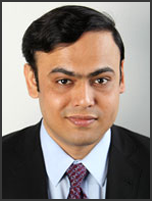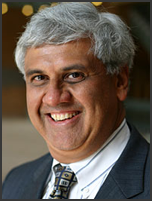Principal Investigators
 Xenofon Koutsoukos (Lead PI) is a Professor in the Department of Electrical Engineering and Computer Science at Vanderbilt University. He is also a Senior Research Scientist in the Institute for Software Integrated Systems (ISIS). Before joining Vanderbilt, Dr. Koutsoukos was a Member of Research Staff in the Xerox Palo Alto Research Center (PARC) (2000-2002), working in the Embedded Collaborative Computing Area. He received his PhD in Electrical Engineering from the University of Notre Dame in 2000. His research work is in the area of cyber-physical systems with emphasis on formal methods, distributed algorithms, diagnosis and fault tolerance, and adaptive resource management. He has published numerous journal and conference papers and he is co-inventor of four US patents. He was the recipient of the NSF Career Award in 2004, the Excellence in Teaching Award in 2009 from the Vanderbilt University School of Engineering, and the 2011 NASA Aeronautics Research Mission Directorate (ARMD) Associate Administrator (AA) Award in Technology and Innovation.
Xenofon Koutsoukos (Lead PI) is a Professor in the Department of Electrical Engineering and Computer Science at Vanderbilt University. He is also a Senior Research Scientist in the Institute for Software Integrated Systems (ISIS). Before joining Vanderbilt, Dr. Koutsoukos was a Member of Research Staff in the Xerox Palo Alto Research Center (PARC) (2000-2002), working in the Embedded Collaborative Computing Area. He received his PhD in Electrical Engineering from the University of Notre Dame in 2000. His research work is in the area of cyber-physical systems with emphasis on formal methods, distributed algorithms, diagnosis and fault tolerance, and adaptive resource management. He has published numerous journal and conference papers and he is co-inventor of four US patents. He was the recipient of the NSF Career Award in 2004, the Excellence in Teaching Award in 2009 from the Vanderbilt University School of Engineering, and the 2011 NASA Aeronautics Research Mission Directorate (ARMD) Associate Administrator (AA) Award in Technology and Innovation.
 Saurabh Amin (MIT PI) is an Assistant Professor in the MIT Department of Civil and Environmental Engineering. His research focuses on the design and implementation of resilient network control algorithms for infrastructure systems. He works on robust diagnostics and control problems that involve using networked systems to facilitate the monitoring and control of large-scale critical infrastructures, including energy, transportation, and water distribution systems. He also studies the effect of security attacks and random faults on the survivability of these systems, and designs incentive mechanisms to reduce network risks.
Saurabh Amin (MIT PI) is an Assistant Professor in the MIT Department of Civil and Environmental Engineering. His research focuses on the design and implementation of resilient network control algorithms for infrastructure systems. He works on robust diagnostics and control problems that involve using networked systems to facilitate the monitoring and control of large-scale critical infrastructures, including energy, transportation, and water distribution systems. He also studies the effect of security attacks and random faults on the survivability of these systems, and designs incentive mechanisms to reduce network risks.

Dusko Pavlovic (U. of Hawaii PI) was born in Sarajevo, studied mathematics at Utrecht, and was a postdoc at McGill, before starting an academic career in computer science at Imperial College and at Sussex. He left academia from 1999 to 2009 to work in software research at the Kestrel Institute in Palo Alto. He was a Visiting Professor at Oxford University from 2008-2012, Professor of Information Security at Royal Holloway, University of London (part time at University of Twente in the Netherlands) 2010-2013. He took his current chair in Computer Science at University of Hawaii at Manoa in 2013.
Through the years, Dusko’s publications covered a wide area of research interests, from mathematics (graphs, categories) through theoretical computer science (semantics, symbolic computation) and software engineering (behavioral specifications, adaptation), to security (protocols, trust, physical security) and network computation (information extraction). Dusko’s past publications and the slides of some of his recent talks are available from his web page.
 S. Shankar Sastry (UC Berkeley PI) received his B.Tech. from the Indian Institute of Technology, Bombay, 1977, a M.S. in EECS, M.A. in Mathematics and Ph.D. in EECS from UC Berkeley, 1979, 1980, and 1981 respectively. S. Shankar Sastry is currently dean of the College of Engineering. He was formerly the Director of CITRIS (Center for Information Technology Research in the Interest of Society) and the Banatao Institute @ CITRIS Berkeley. He served as chair of the EECS department from January, 2001 through June 2004. In 2000, he served as Director of the Information Technology Office at DARPA. From 1996-1999, he was the Director of the Electronics Research Laboratory at Berkeley, an organized research unit on the Berkeley campus conducting research in computer sciences and all aspects of electrical engineering. He is the NEC Distinguished Professor of Electrical Engineering and Computer Sciences and holds faculty appointments in the Departments of Bioengineering, EECS and Mechanical Engineering. Prior to joining the EECS faculty in 1983 he was a professor at MIT.
S. Shankar Sastry (UC Berkeley PI) received his B.Tech. from the Indian Institute of Technology, Bombay, 1977, a M.S. in EECS, M.A. in Mathematics and Ph.D. in EECS from UC Berkeley, 1979, 1980, and 1981 respectively. S. Shankar Sastry is currently dean of the College of Engineering. He was formerly the Director of CITRIS (Center for Information Technology Research in the Interest of Society) and the Banatao Institute @ CITRIS Berkeley. He served as chair of the EECS department from January, 2001 through June 2004. In 2000, he served as Director of the Information Technology Office at DARPA. From 1996-1999, he was the Director of the Electronics Research Laboratory at Berkeley, an organized research unit on the Berkeley campus conducting research in computer sciences and all aspects of electrical engineering. He is the NEC Distinguished Professor of Electrical Engineering and Computer Sciences and holds faculty appointments in the Departments of Bioengineering, EECS and Mechanical Engineering. Prior to joining the EECS faculty in 1983 he was a professor at MIT.
Research Team
 Anthony D. Joseph is Director of Intel Research Berkeley, and a Chancellor’s Associate Professor in Electrical Engineering and Computer Science at UC Berkeley. Joseph holds a Ph.D. and S.M. in Computer Science from MIT and a B.S. in EECS from MIT. His research includes adaptive techniques for: cloud computing, distributed network monitoring and triggering, network and computer security, and security defenses for machine learning-based decision systems. His principal field of interest is systems and networking: cybersecurity, datacenter architectures, mobile systems and networking, and overlay networks.
Anthony D. Joseph is Director of Intel Research Berkeley, and a Chancellor’s Associate Professor in Electrical Engineering and Computer Science at UC Berkeley. Joseph holds a Ph.D. and S.M. in Computer Science from MIT and a B.S. in EECS from MIT. His research includes adaptive techniques for: cloud computing, distributed network monitoring and triggering, network and computer security, and security defenses for machine learning-based decision systems. His principal field of interest is systems and networking: cybersecurity, datacenter architectures, mobile systems and networking, and overlay networks.
 Dr. Gabor Karsai is a Professor of Electrical Engineering and Computer Science at Vanderbilt University, and Senior Research Scientist at the Institute for Software-Integrated Systems. He has over twenty-five years of experience in software engineering. He conducts research in the design and implementation of embedded systems, in programming tools for visual programming environments, in the theory and practice of model-integrated computing, and in resource management and scheduling systems. He received his Diploma, MSc, and Dr. Techn. degrees from the Technical University of Budapest, Hungary, in 1982, 1984 and 1988, respectively, and his PhD from Vanderbilt University in 1988. He has published over 100 papers, and he is the co-author of four patents. He has managed several large research projects on model-based integration of embedded systems, on model-based toolchains, on fault-adaptive control technology, and on coordinated scheduling and planning.
Dr. Gabor Karsai is a Professor of Electrical Engineering and Computer Science at Vanderbilt University, and Senior Research Scientist at the Institute for Software-Integrated Systems. He has over twenty-five years of experience in software engineering. He conducts research in the design and implementation of embedded systems, in programming tools for visual programming environments, in the theory and practice of model-integrated computing, and in resource management and scheduling systems. He received his Diploma, MSc, and Dr. Techn. degrees from the Technical University of Budapest, Hungary, in 1982, 1984 and 1988, respectively, and his PhD from Vanderbilt University in 1988. He has published over 100 papers, and he is the co-author of four patents. He has managed several large research projects on model-based integration of embedded systems, on model-based toolchains, on fault-adaptive control technology, and on coordinated scheduling and planning.
Himanshu Neema is a Senior Staff Engineer at Institute for Software Integrated Systems, at Vanderbilt University. His primary research interests include Modeling and Simulation, Rapid Synthesis of Command and Control (C2) Heterogeneous Simulations, Service-Oriented Architectures (SOAs) on Mobile Ad hoc Networks (MANETs), Resource Allocation, Planning & Scheduling, Constraint Programming, and Solution Clusters.

Larry Rohrbough is the Executive Director of TRUST. Prior to joining TRUST, Mr. Rohrbough was ESCHER Research Institute's Chief Technology Officer. Mr. Rohrbough has over 20 years of experience in software engineering, technology consulting, program management, and business development for commercial, military, and government customers. Mr. Rohrbough has particular expertise in the Telecommunications and Department of Defense industries, Science and Technology research and development initiatives, and large-scale Operations Support System (OSS) development, deployment, and support.
 Dr. Janos Sztipanovits (Fellow, IEEE) is the E. Bronson Ingram Distinguished Professor of Engineering in the Electrical Engineering and Computer Science Department of Vanderbilt University. He is founding director of the Institute for Software Integrated Systems (ISIS). Between 1999 and 2001, he worked as program manager and acting deputy director of DARPA Information Technology Office. During the past two decades, Dr. Sztipanovits has conducted research on Model-Integrated Computing, structurally adaptive systems, and embedded software and systems. He has published over 160 papers and co-authored two books. He is chair of the ACM Special Interest Group on Embedded Systems (SIGBED).
Dr. Janos Sztipanovits (Fellow, IEEE) is the E. Bronson Ingram Distinguished Professor of Engineering in the Electrical Engineering and Computer Science Department of Vanderbilt University. He is founding director of the Institute for Software Integrated Systems (ISIS). Between 1999 and 2001, he worked as program manager and acting deputy director of DARPA Information Technology Office. During the past two decades, Dr. Sztipanovits has conducted research on Model-Integrated Computing, structurally adaptive systems, and embedded software and systems. He has published over 160 papers and co-authored two books. He is chair of the ACM Special Interest Group on Embedded Systems (SIGBED).
 Claire Tomlin is a Professor of Electrical Engineering and Computer Sciences at the University of California at Berkeley, where she holds the Charles A. Desoer Chair in Engineering. She held the positions of Assistant, Associate, and Full Professor at Stanford from 1998-2007, and in 2005 joined Berkeley. She received the Erlander Professorship of the Swedish Research Council in 2009, a MacArthur Fellowship in 2006, and the Eckman Award of the American Automatic Control Council in 2003. She works in hybrid systems and control, with applications to air traffic systems, robotics, and biology.
Claire Tomlin is a Professor of Electrical Engineering and Computer Sciences at the University of California at Berkeley, where she holds the Charles A. Desoer Chair in Engineering. She held the positions of Assistant, Associate, and Full Professor at Stanford from 1998-2007, and in 2005 joined Berkeley. She received the Erlander Professorship of the Swedish Research Council in 2009, a MacArthur Fellowship in 2006, and the Eckman Award of the American Automatic Control Council in 2003. She works in hybrid systems and control, with applications to air traffic systems, robotics, and biology.

Peter Volgyesi is a Research Scientist at the Institute for Software Integrated Systems at Vanderbilt University. In the past decade Mr. Volgyesi has been working on several novel and high impact projects sponsored by DARPA, NSF, ONR, ARL and industrial companies (Lockheed Martin, BAE Systems, the Boeing Company, Raytheon, Microsoft). He is one of the architects of the Generic Modeling Environment, a widely used metaprogrammable visual modeling tool, and WebGME - its modern web-based variant. Mr. Volgyesi had a leading role in developing the real-time signal processing algorithms in PinPtr, a low cost, low power countersniper system. He also participated in the development of the Radio Interferometric Positioning System (RIPS), a patented technology for accurate low-power node localization. As PI on two NSF funded projects Mr. Volgyesi and his team developed a low-power software-defined radio platform (MarmotE) and a component-based development toolchain targeting multicore SoC architectures for wireless cyber-physical systems. His team won the Preliminary Tournament of the DARPA Spectrum Challenge in September, 2013.
 Yevgeniy Vorobeychik is an Assistant Professor of Computer Science and Computer Engineering at Vanderbilt University. Previously, he was a Principal Member of Technical Staff at Sandia National Laboratories. Between 2008 and 2010 he was a post-doctoral research associate at the University of Pennsylvania Computer and Information Science department. He received Ph.D. (2008) and M.S.E. (2004) degrees in Computer Science and Engineering from the University of Michigan, and a B.S. degree in Computer Engineering from Northwestern University. His work focuses on game theoretic modeling of security, algorithmic and behavioral game theory and incentive design, optimization, complex systems, epidemic control, network economics, and machine learning. Dr. Vorobeychik has published over 60 research articles on these topics. Dr. Vorobeychik was nominated for the 2008 ACM Doctoral Dissertation Award and received honorable mention for the 2008 IFAAMAS Distinguished Dissertation Award. In 2012 he was nominated for the Sandia Employee Recognition Award for Technical Excellence. He was also a recipient of a NSF IGERT interdisciplinary research fellowship at the University of Michigan, as well as a distinguished Computer Engineering undergraduate award at Northwestern University.
Yevgeniy Vorobeychik is an Assistant Professor of Computer Science and Computer Engineering at Vanderbilt University. Previously, he was a Principal Member of Technical Staff at Sandia National Laboratories. Between 2008 and 2010 he was a post-doctoral research associate at the University of Pennsylvania Computer and Information Science department. He received Ph.D. (2008) and M.S.E. (2004) degrees in Computer Science and Engineering from the University of Michigan, and a B.S. degree in Computer Engineering from Northwestern University. His work focuses on game theoretic modeling of security, algorithmic and behavioral game theory and incentive design, optimization, complex systems, epidemic control, network economics, and machine learning. Dr. Vorobeychik has published over 60 research articles on these topics. Dr. Vorobeychik was nominated for the 2008 ACM Doctoral Dissertation Award and received honorable mention for the 2008 IFAAMAS Distinguished Dissertation Award. In 2012 he was nominated for the Sandia Employee Recognition Award for Technical Excellence. He was also a recipient of a NSF IGERT interdisciplinary research fellowship at the University of Michigan, as well as a distinguished Computer Engineering undergraduate award at Northwestern University.